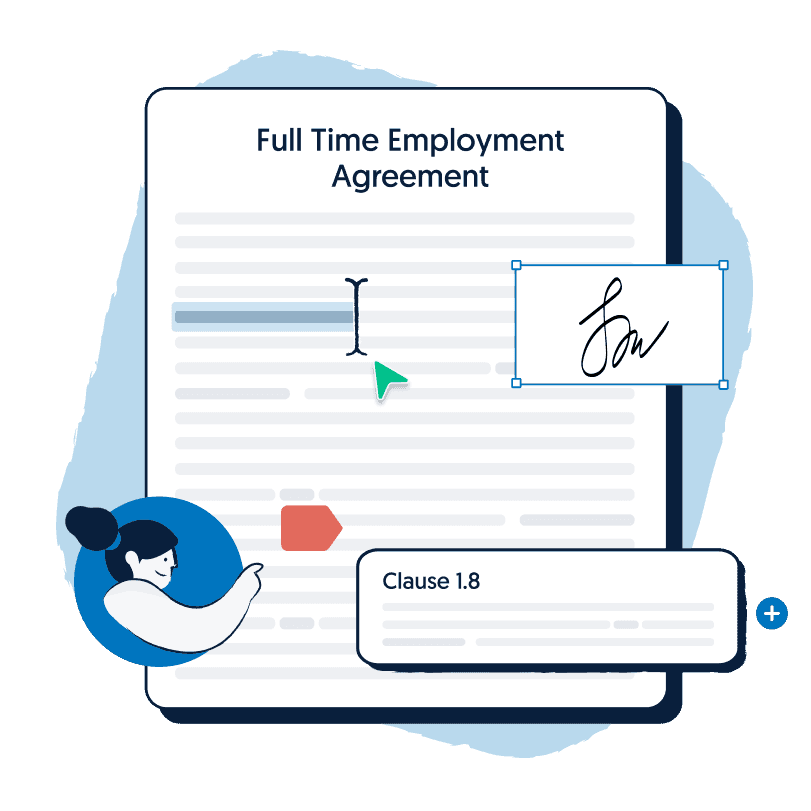Employees can resign without notice if they are casuals or if extenuating circumstances exist. Find out more in this article.
Key points
- Permanent employees are normally legally required to provide notice when resigning
- The length of the notice period depends on national laws or your employment contract
- However, casual employees do not have to provide any notice
- Employees who are still on probation also do not need to provide much notice
Introduction
As an employer, you have to manage the turnover of your employees. Although no employer wants to have to deal with a high turnover rate, you can’t stop your employees from resigning. The most you can do as an employer is make your business the kind of place people want to work at and provide incentives for employees to want to succeed and stay loyal to your business. Yet even if you incentivise your employees to remain at your business, sometimes your employees may resign. Worse still, they may resign without notice. Whether they’ve simply failed to turn up to work or resigned on the spot, this can be highly disruptive. There are however circumstances where this is perfectly legal. In this article, we’ll explain when employees can resign without notice.
Resigning without notice
Resignations are common in business. If your employee resigns on the spot however, it can be extremely inconvenient. Not only does this give you no time to find a replacement or undertake a proper hand over, a lot of their work may be unfinished. It is not illegal for employees to resign without notice, but there are consequences employees can face. Many employees are aware of this, and will subsequently provide due notice. The general rule is that you can withhold money you owe to the employee for resigning without notice. This is determined by what your employee would have earned if you had been provided with notice. In addition to this, you can refuse your employee’s request to provide a reference letter or act as a referee.
Employee obligations
It is important for employees to understand they are legally obliged to give their employers
adequate notice. This means employees are required to provide their employers with the
minimum period of notice under the Fair Work Ombudsman’s
National Employment Standards (NES). Basically, the NES applies to
all employees covered by the national workplace relations system. Be aware the NES may require an employee to give an additional weeks’ notice if he or she is over 45 years old. Aside from the NES, the minimum period of notice can also be found in:
- An employee’s award
- Employment contract
- Enterprise agreement
- Other registered agreement
- A ‘Termination of Employment’ clause in a Modern Award
Get your full time employment agreement now for free.
Hire your employees and protect your business with our full time employment agreement.
Casual employees
Employees who work on a casual basis do not have to provide notice. This also applies in reverse if you wish to terminate your employee. Similarly, casual employees are not entitled to paid leave. Therefore, if your casual employee does resign without notice, you will not owe them money for any untaken leave.
Employees on probation
Full time and part time employees often commence a job on probation. Probation periods usually last for 3 or 6 months and allow both an employer and employee to ensure the employee is a good fit for the job. Notice periods during probation periods are usually 1 week. This means that if your employee is still on probation, they only have to provide you with 1 weeks’ notice if they are resigning.
Modern Awards
Generally, the ‘Termination of Employment’ clause in a Modern Award will show you how the notice period is calculated based on the employee’s length of employment. If the employee has worked for an employer for:
- Less than a year – The minimum notice period is one week
- Between one to three years – The minimum notice period is two weeks
- Between three to five years – The minimum notice period is three weeks
- Five years or more – The minimum period is four weeks
The FWO has a
Notice and Redundancy Calculator you can use to calculate notice and find information about the minimum notice requirements. However, the length of notice required may vary depending on the provision contained in the applicable industrial instrument. The industrial instrument can be a federal industrial instrument, state industrial instrument or non-industrial instrument.
Employment contracts
Employment contracts usually include clauses about how much notice is required on termination. For many full time positions, the notice period is 4 weeks. However, this will vary depending on the arrangements between the employer and employer.
How Does An Employee Give Notice?
There are two ways your employee can give notice of their resignation:
Verbally
An employee does not legally have to resign in writing. If the employee chooses to resign verbally, then the employer should follow up by confirming the resignation in writing. This is important to ensure that both you and your employee are on the same page. The
Fair Work Act 2009 (Cth) requires employers to keep records of when employees leave the business, including information about who terminated their employment and the details of how it took place.
Writing
Employees can hand in a Letter of Resignation. Doing this will confirm your resignation and leave no room for misunderstandings to arise. This is always the preferred method to verbally resigning. Ideally, you should do both and explain that you’re resigning whilst handing in your letter. Your letter should include the date of your resignation, a brief explanation of why you are resigning, what your last day at work will be and be signed by you. If you want to resign from your current job, can easily create a
Letter of Resignation online in a matter of minutes.
Conclusion
Overall, it is good practice for employees to notify their employer about their resignation, and give the minimum amount of notice to their employer. Not only will this ensure that employees receive pay for working throughout this period and their leave entitlements, it is also the professional way to do things. It’s never a good idea to leave things on bad terms as your employee may need you to vouch for them later for a future job. Further, professional industry circles are smaller than people think, so it’s likely you’ll encounter your employee again at some point in the future.





